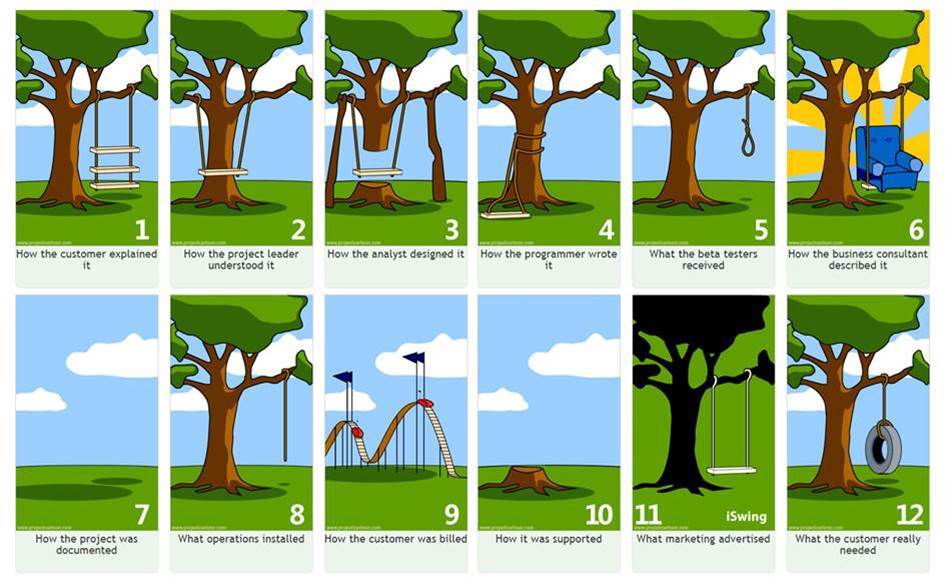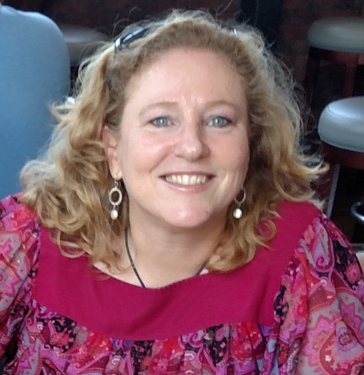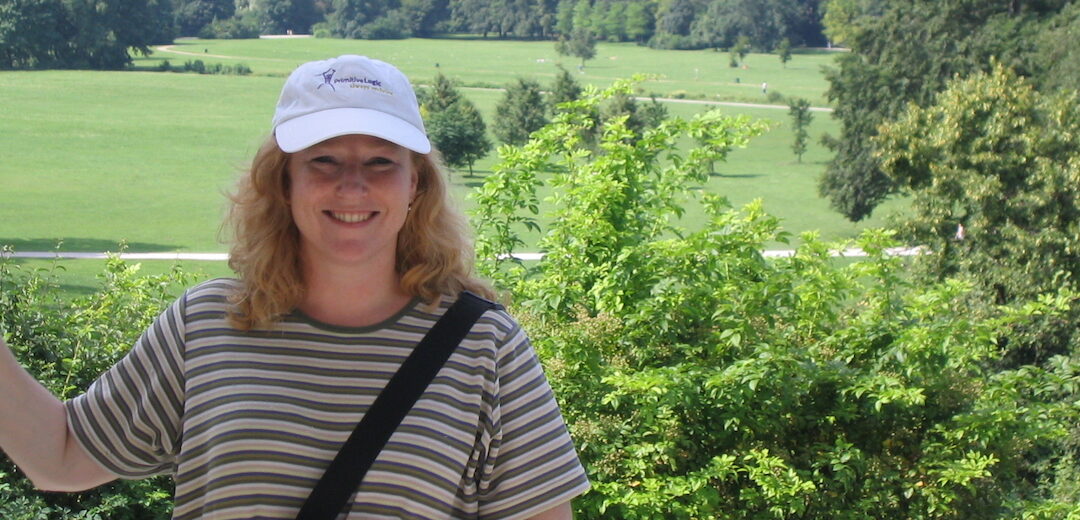8-minute read
Prince had ushered in the new millennium with his final performance of the song “1999.” The then-St. Louis Rams beat the Tennessee Titans to win Super Bowl XXXIV. Venus Williams took home her first Wimbledon title. Gladiator dominated the summer box office, and the Grammy for Best New Artist went to a 19-year-old Christina Aguilera.
The year was 2000 — the same year I joined a small-but-spunky consulting firm in San Francisco named Primitive Logic, now a Logic20/20 company.
As I look back on two decades with the people who have become family to me, I’m struck by the depth and breadth of lessons I’ve been privileged to learn along the way. So to celebrate this 20-year milestone, I’d like to share 20 of those lessons with you, in a four-part monthly series.
In each edition, I’ll share 5 lessons grounded in a specific theme, and this month we focus on the SELF. You’ve probably heard the quote “Wherever you go, there you are,” which I’ve heard attributed to sources ranging from Confucius to Jon Kabat-Zinn to the 80s film Buckaroo Bonzai. Regardless of who said it first, it’s something we must all keep in mind, especially as consultants. No matter which client you’re working for, what project you’re working on, or what role you’re playing, the common denominator is you. Our thoughts, our words, and our actions are the only things we have absolute control over, and if we use that control wisely, we set ourselves up for success.
Lesson 1: Be humble
One of the earliest lessons I learned in consulting is that it’s not about “you” — it’s about making the client successful and being humble along the way. Think about what we all do as children in school: we put our names at the top of our homework and on the front of our book reports. But in our work with clients, it’s not my name that’s important. What’s important is that as a team and as a company, we provide solutions that put our client’s name forward.
Lesson 2: Be confident
Building self-regard over the years has entailed respecting my abilities — my limitations as well as my strengths — while being confident and satisfied in that growth. Having confidence to admit mistakes or unfamiliarity with a situation is so key in consulting and in leadership. Even at times when I felt nervous or unsure of next steps, I forced myself to clearly define my purpose, to show the client and my team that I’m there to be of service, and to reassure them all that we would figure it out.
Lesson 3: Stay positive
I feel that empathy, optimism, and a positive attitude are at the heart of all effective work relationships and situations. As Kahlil Gibran stated, “Your living is determined not so much by what life brings to you, as by the attitude you bring to life; not so much by what happens to you, as by the way your mind looks at what happens.” The attitude we bring to our consulting projects is what determines the overall result.
Lesson 4: Be curious
Curiosity is my favorite word, and lifelong learning is my mission. Listening is so important in all that we do — in working with clients and within our own teams, in leadership, and in all aspects of our lives. If we don’t really listen, we’ll end up with the “tree swing” cartoon that I had posted on my door:

Lesson 5: Embrace the balance
There is a balance in all that we do at work — the fun, exciting, new stuff and the boring, tedious, difficult stuff. What stands out to me is when a colleague brings his or her whole self and embraces that balance, even kindly and patiently making copies, doing dishes, taking notes, cleaning out desks, watering plants, or helping with tasks we would all rather avoid. When I’m in that situation, I take a breath, tell myself it’s part of the overall balance, and mindfully find meaning in that “icky” chore.
Lesson 6: Be a problem solver.
In the world of consulting, I feel like I’ve done my job if the client doesn’t have to ask me for updates on the project — and better yet, is pleasantly surprised when I provide reports they can share with their leadership. One of the best compliments I received years ago was “you took care of this before I realized we needed to do it,” followed by “I’ve put a bungee cord on your back, so even if you think you’re going to another project, I’ll make sure you bounce back here, to keep us moving forward.”
Lesson 7: Communicate often.
People don’t choose to work in consulting if they want to work in isolation. As a child, I loved team sports, games with the family, and gatherings with friends. In each scenario, it’s all about bringing different skills, ideas, personalities, and lots of communication. For example, in one of my favorite sports, soccer, we were always talking with each other, coaching, encouraging, and focusing on the goal across the field. I know my teams often tease me that I have rose-colored glasses or that my glass is not half empty or half full, but overflowing, but I prefer to believe that people really do have the best intentions in mind and want to contribute to the bigger purpose.
Lesson 8: Be authentic.
Being my authentic (and true) self lets me enjoy what I do every day — at work, at home, and in volunteer and committee sessions. I always tell my teams to just be open and honest, put their thoughts and suggestions out there, and don’t make me guess. And if they’re bringing me problems (a squeaky wheel), also bring some solutions (the oil can). As Henna Inam shares in this Wharton article, “consulting firms can create significant value through the practice of authenticity.”
Lesson 9: Nurture partnerships.
I view this journey that we’re on together as an adventure, and my curiosity will always drive me to meet new people and seek new ideas, yet also continue to build and nurture existing relationships. How does that song go that we learned in kindergarten … “make new friends, but keep the old, one is silver, and the other’s gold.” I strongly believe that partnerships and alliances allow for growth all around — we’re not in this alone, and it’s all about teams.
Lesson 10: Practice consistency.
“Part of courage is simple consistency,” wrote Peggy Noonan. Our clients expect us to be dependable, intentional, dedicated, accountable — and nothing is more effective than consistency to make us their trusted advisors. Consistency is the habit that leads to successful projects. It really is that simple — do our best work, do it every time, aim high, and stay there. We’ve all been there — you have a favorite restaurant, perhaps that taco truck up the street, and you expect them to deliver that same delicious burrito al pastor filled with avocado every time. The consistency in their product and cheerful service is what makes me go back to them again and again.
Lesson 11: Be a team player.
Some of you know that I played soccer from kindergarten through college, and loved being center half, as well as sweeper. Those positions enabled me to watch the whole field, anticipate moves by the other team, coach from the field, close the gaps, play backup, and cover my teammates. I still lean on those capabilities in my work interactions and have immense respect for team players in our “adulting” world. I encourage everyone to understand group development and dynamics — forming, storming, norming, performing — especially as our consulting teams are always evolving with each engagement. Be a team player and lift up your colleagues.
Lesson 12: Live your values.
The values we bring to our teams start getting defined early in childhood and we embrace them through experiences and decisions. They inform our thoughts, words, and actions — and help us grow, prioritize, and develop. I recommend identifying your own personal values (like honesty, curiosity, loyalty), then understanding what some universal values can be (like peace, freedom, human dignity), as well as moral values (like respecting others, being trustworthy, showing gratitude). Then, take a look at our core company values, align with them, see what your client values are, align with those, and use all those values to signpost and guide your service to each other and to our clients. Focus on purpose and your mission, and leverage your values to get you there.
Lesson 13: Be fiercely protective of your people.
This one often makes me smile. A former colleague teased me years ago that he got the whole team those little rubber bracelets with WWAD on them after I moved to another client. The bracelets were a joke in themselves, because during the project the team said I needed the Wonder Woman bracelets to defend them from a difficult stakeholder. So you may be thinking that WWAD stood for Wonder W AD (anno domini), which it didn’t. My colleague responded that although it wasn’t related to a World War either, he knew that I would always fight for my people. He wanted to remind himself and the rest of the team that whenever times got tough or the client was difficult, to ask themselves, “What would Anisha do?” (WWAD). I was very touched, and it was a good reminder that being the “mama bear” to defend our teams and our values, and being the “mother hen” to gather and encourage the troops, is a valuable role within every group. Be loyal, be protective, and be true to your people.
Lesson 14: Build and nurture trust.
When someone loses my trust, it’s really tough to get it back. What does that mean? This is a personal value to me that I will fiercely protect and a strong component of teamwork. Let’s go down the path of applicable quotes related to trust and to being trustworthy, such as Ernest Hemingway stating, “The best way to find out if you can trust somebody is to trust them” and Lao Tzu sharing, “He who does not trust enough will not be trusted.” Part of teamwork is expressed by Booker T. Washington as “Few things help an individual more than to place responsibility upon him, and to let him know that you trust him.” Then rounding us out, Stephen Covey wrote that, “When the trust account is high, communication is easy, instant, and effective.” Where would we be if you couldn’t trust your team, your mentor, your coach, your leaders, or even yourself? Be trustworthy and trust others — embrace it as a value.
Lesson 15: Support always.
People … we are all humans supporting each other humanely, understanding strengths and weaknesses, and traveling on this road together. No company is made up of one person; it’s the sum of all our people, the diversity, the spirit, the culture, the tribe. This truly brings “team” full circle. “It is mutual trust, even more than mutual interest, that holds human associations together” (H.L. Mencken). And what are we together if not supporting each other? I’ve found after all these years that when we, the people, support our teammates, apply our values, show our loyalty, and trust our colleagues, the whole team wins.
Lesson 16: Be nimble
This word “nimble” can get overused these days, along with “agile” and “pivot,” but I still like it and believe that we need to be able to quickly adjust for our clients and each other. We are best able to deliver high-quality solutions by staying on our toes, accommodating for new ideas, shifting our work styles to align with each new client, and nimbly flowing between teams and discussions. Resilient nimbleness will echo in my mind when I think about the year 2020. “There is wisdom in turning as often as possible from the familiar to the unfamiliar: it keeps the mind nimble, it kills prejudice, and it fosters humor.” (George Santayana)
Lesson 17: Cultivate a strong work ethic.
I developed a rigorous work ethic at a young age and attribute that to my upbringing, education, culture, and mindset. My advice for any new consultant is to roll up your sleeves, dive in, join the team, be proactive, and do what it takes to solve the problem. As you advance in your career, remember to set a good example and do the heavy lifting before delegating to others. Have you seen “Undercover Boss?” It’s a “reality series that follows high-level executives as they slip anonymously into the rank-and-file of their own organizations,” and many gain a new respect for the work, processes, and people in their companies. We should all practice that at times … and develop a strong “can do” attitude for our teams and clients.
Lesson 18: Nurture your entrepreneurial spirit.
Stay playful, tell stories, keep inventing — maintain that entrepreneurial spirit and you’ll bring more innovation to your clients and projects. I can understand why so many corporations and teams are bringing games into the boardroom — solving puzzles and working with business Legos, for example. I was recently talking to my good friend Melissa about how we all have to reinvent our models in this evolving virtual work world, and she shared that creativity and improv is even more vital now and so much of what she does (check out her creative sandbox). I love hearing stories like including a goat in a zoom meeting, teaming up with other musicians around the world to play online together, shifting from preparing restaurant meals to pantry boxes for pick up — nimble resilience again. In consulting, we need to be entrepreneurial and innovative, and really, all of us can embrace that spirit, especially now.
Lesson 19: Be “always evolving.”
In that same vein of being nimble, diving into work, and creating, we should always evolve, embrace change, and continue to grow. I encourage my teams to try new things and not be afraid to fail. It’s often in the failures that we have our greatest lessons, so gracefully navigate your way out and learn from them. I believe that developing a growth mindset leads to better consulting and problem solving. For those who haven’t heard or read Carol Dweck’s theories on developing a growth mindset yet, this quick 9-minute talk from her is helpful, as well as these short 2-minute and 6-minute summaries. Stay curious!
Lesson 20: Enjoy the journey!
One of my favorite sayings, which also hangs above my door, is “the joy is in the journey.” Have you ever traveled with someone who only focused on the destination, nose in book about all the places to see in the next town, while missing the unfolding scenery and stories throughout the drive? Or what about the person who hikes quickly to the top of the mountain without noticing the wildflower meadows, icy waterfalls, fern forests, and animals along the way? Seek out those pebbles along the way — stop to learn, to chat, to savor. These past 20 years have been an adventure with fun milestones, great clients, interesting work, awesome colleagues, challenging problems, and endless learnings. The path stretches on … and I will continue to be curious and take “the one less traveled” (from a favorite poem).
Thank you for joining me on this journey of memories, of nuggets, of learnings, and I hope some will help you on your own path. Play with them, tweak them, evolve them and pass them forward. “A journey of a thousand miles begins with a single step.” (Lao Tzu)
Like what you see?

Managing Director Anisha Weber has over 25 years of digital transformation experience in technology and consulting, leading tactical and strategic initiatives.

